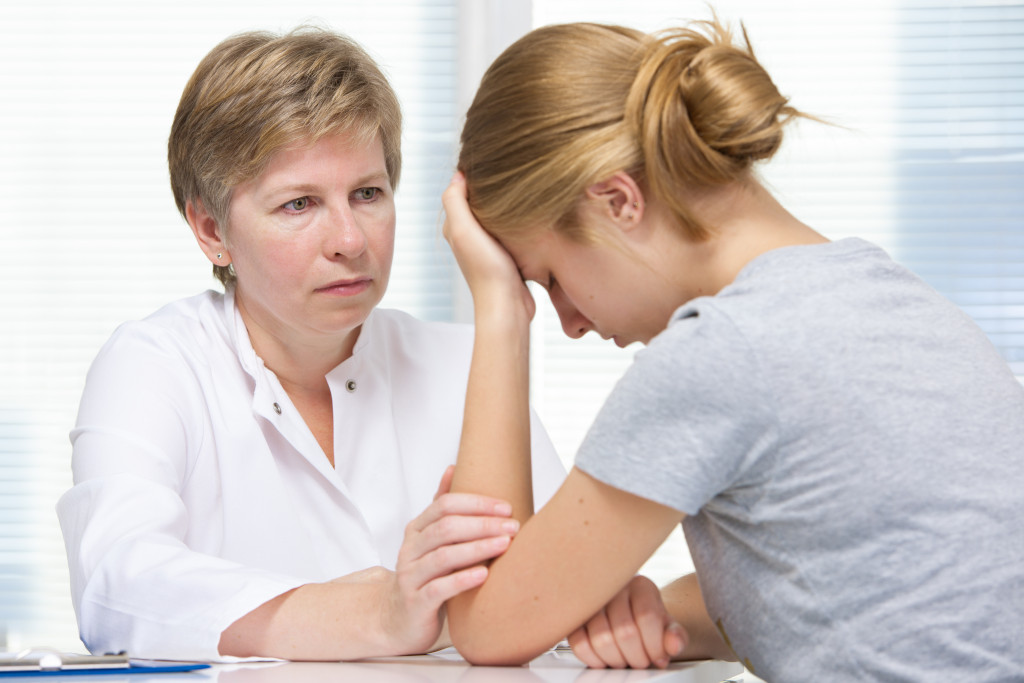- Developing a healthy and balanced relationship with food is essential to healing disordered eating patterns.
- Common signs of disordered eating include an obsession with food and weight, restrictive eating patterns, and distorted body image.
- Professional help is essential for recognizing and addressing disordered eating; options include registered dietitians, nutritionists, and eating disorder treatment centers.
- Strategies for healing eating behaviors include cultivating a healthy relationship with food and practicing self-care and compassion.
- Taking proactive steps to heal from disordered eating can improve emotional and physical health.
Eating behaviors play a significant role in our overall health and well-being. However, the struggle to maintain a healthy relationship with food is a common problem. It can affect emotional and physical health, whether it’s restrictive eating, binge eating, or disordered eating.
Moreover, eating behaviors can significantly impact overall health and well-being. Unhealthy eating habits can lead to negative feelings such as guilt and shame and even result in physical health problems such as malnutrition and gastrointestinal issues.
Similarly, restrictive eating patterns can trigger binge eating episodes, further exacerbating the problem. Recognizing and addressing disordered eating patterns is crucial to emotional and physical healing.
Signs and Symptoms of Disordered Eating
Disordered eating patterns often manifest in several ways. One of the most common signs is an obsession with food and weight.
Obsession with Food and Weight
An obsession with food and weight can lead to restrictive eating patterns. Some may avoid social situations involving food, resulting in declining relationships and social isolation.
Disordered eating can also cause a lack of energy and concentration, affecting work performance and daily activities. In some cases, it may even lead to more severe eating disorders such as anorexia nervosa or bulimia.
Restrictive Eating Patterns
Restrictive eating patterns involve avoiding or severely limiting certain foods or food groups. Individuals may eliminate food groups such as carbohydrates or fats, leading to nutritional deficiencies and other health problems.
Restrictive eating behaviors can also cause individuals to feel deprived, thus increasing the likelihood of binge eating episodes.
Binge Eating Episodes
Binge eating episodes are characterized by consuming large amounts of food in a short period. Individuals with binge eating disorders tend to eat rapidly and hide their eating habits.
They often feel out of control and experience feelings of shame and guilt after a binge. Binge eating may cause weight gain, digestive problems, and other health concerns.
Distorted Body Image
A distorted body image often accompanies disordered eating. Individuals may perceive their bodies as more significant than they are or place an unhealthy emphasis on specific body parts. This distorted image can lead to further negative self-talk and feelings about the self.
Seeking Professional Help
Seeking professional help can seem intimidating; however, it is the first step to healing eating behaviors. Many medical professionals are equipped to cater to different eating disorders to assist those struggling with them.
Registered Dietitian or Nutritionist
A registered dietitian or nutritionist is a health professional that specializes in nutrition. They are skilled in helping people make suitable and healthy food choices to improve and maintain optimal health.
They will evaluate an individual’s specific nutritional needs and suggest treatment options as well as mental support through the healing process.
Therapist or Counselor
Therapists and counselors can provide emotional support for food-related mental health disorders. They offer a listening ear and resources for individuals with eating disorders to vent and realize the root of their problems.
Depression, anxiety, and other mood disorders are symptoms experienced by those with eating disorders that therapists and counselors can assist with.
Medical Doctor
An individual’s medical care is also essential regarding food-related disorders. A medical doctor can diagnose, assess, and treat underlying conditions affecting the individual’s behavior.
In addition, they can collaborate with a patient’s registered dietitian on proper nutrition therapy that complements any medical care given.
Eating Disorder Treatment Center
An eating disorder treatment center is ideal for individuals requiring more intensive care within a controlled environment. This is the best route for those suffering from severe eating disorders such as anorexia or bulimia.
Treatment centers provide medical supervision, mental support, emotional encouragement, and education for continued growth and personal development.

Strategies for Healing Eating Behaviors
There are several strategies for healing eating behaviors, including:
Cultivating a Healthy and Balanced Relationship With Food
One of the most crucial aspects of healing eating behaviors is developing a healthy and balanced relationship with food. This involves understanding the importance of proper nutrition and honoring one’s hunger and fullness cues.
Addressing Emotional Triggers and Developing Coping Mechanisms
For many people with eating disorders, emotional triggers can lead to unhealthy behaviors.
Addressing these triggers and developing coping mechanisms to prevent relapse is essential. It includes seeking professional counseling or therapy to work through underlying issues.
Building a Support Network and Seeking Social Support
Building a support network is another crucial step in healing eating behaviors. Finding friends or family members who can provide emotional support and encouragement can help.
Support groups or online forums can also give a sense of community and understanding.
Practicing Self-Care and Self-Compassion
It is important to practice self-care and self-compassion to heal from negative eating behaviors.
Activities that promote relaxation and stress relief, like taking long walks or practicing yoga, an excellent way to navigate this challenge. It also means being kind and gentle with oneself instead of engaging in negative self-talk or self-criticism.

Healing disordered eating behaviors requires identifying and addressing the underlying issues. Rebuilding a healthy relationship with food and a positive body image takes time and effort, but the rewards are immense.
Strategies such as seeking counseling, practicing mindfulness, and implementing self-care routines can all contribute to a healthier lifestyle. Remember to be kind to yourself during the process and celebrate every step towards healing.

